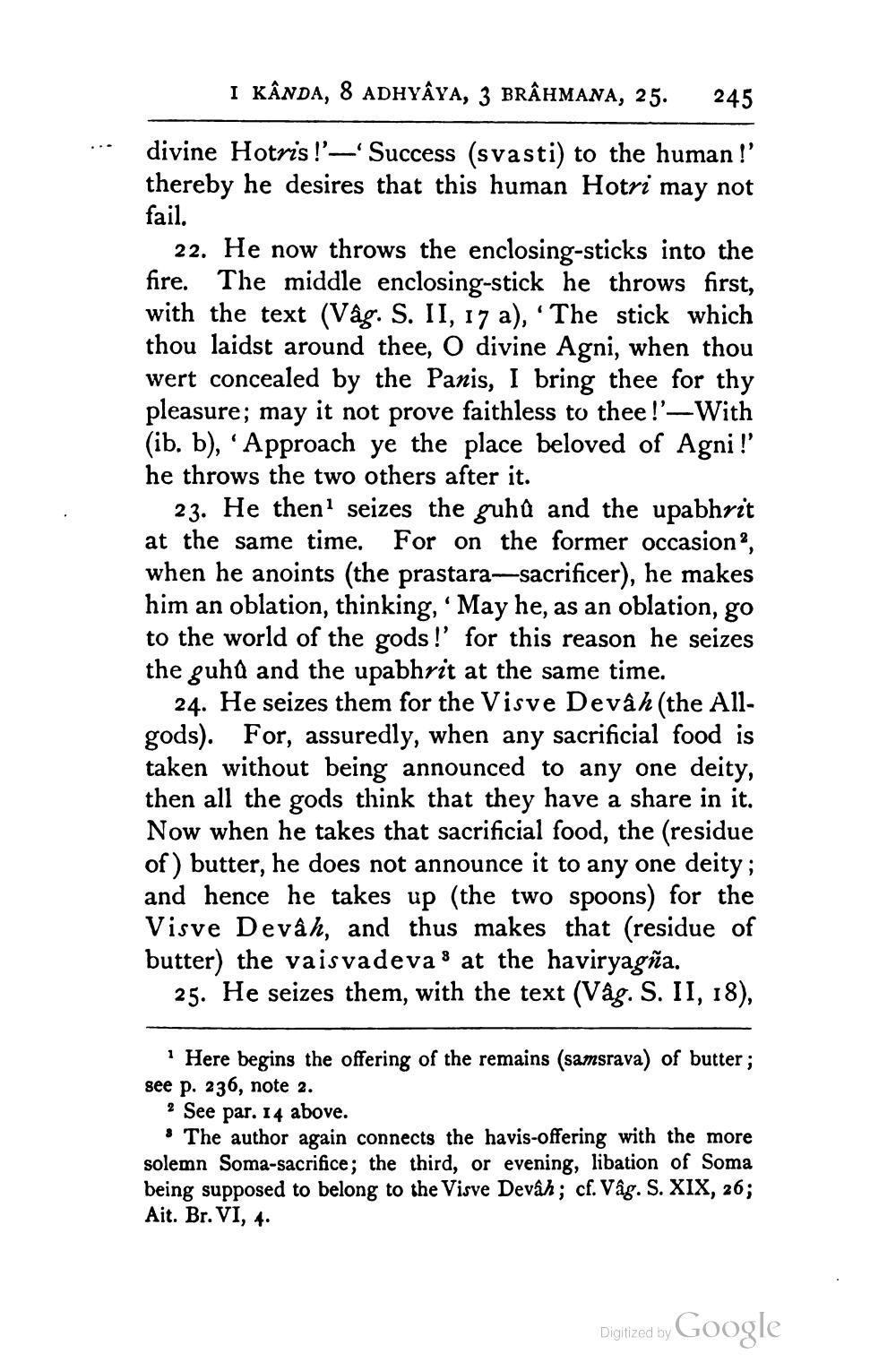________________
I KÂNDA, 8 ADHYAYA, 3 BRÂHMANA, 25.
245
divine Hotris !'-'Success (svasti) to the human!' thereby he desires that this human Hotri may not fail.
22. He now throws the enclosing-sticks into the fire. The middle enclosing-stick he throws first, with the text (Vâg. S. II, 17 a), “The stick which thou laidst around thee, O divine Agni, when thou wert concealed by the Panis, I bring thee for thy pleasure; may it not prove faithless to thee!'-With (ib. b), 'Approach ye the place beloved of Agni !' he throws the two others after it.
23. He then? seizes the guhů and the upabhrit at the same time. For on the former occasion?, when he anoints (the prastara-sacrificer), he makes him an oblation, thinking, ' May he, as an oblation, go to the world of the gods !' for this reason he seizes the guhů and the upabhrit at the same time.
24. He seizes them for the Visve Devâh (the Allgods). For, assuredly, when any sacrificial food is taken without being announced to any one deity, then all the gods think that they have a share in it. Now when he takes that sacrificial food, the (residue of butter, he does not announce it to any one deity; and hence he takes up (the two spoons) for the Visve Devâh, and thus makes that (residue of butter) the vaisvadeva 8 at the haviryagña.
25. He seizes them, with the text (Våg. S. II, 18),
Here begins the offering of the remains (samsrava) of butter; see p. 236, note 2.
? See par. 14 above.
* The author again connects the havis-offering with the more solemn Soma-sacrifice; the third, or evening, libation of Soma being supposed to belong to the Visve Devah; cf. Våg. S. XIX, 26; Ait. Br. VI, 4.
Digitized by
Digitized by Google




